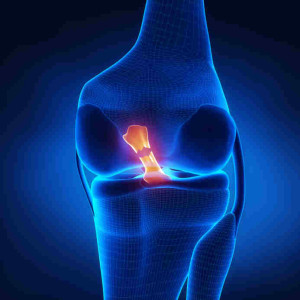ACL tears occur most often in athletes, and reconstruction may become necessary if you have knee instability that impacts your quality of life. If you would like to find out more about ACL treatment options in Berks County, it’s important to contact a physician who specializes in sports medicine.
 As a board certified orthopedic surgeon and a leading expert in advanced arthroscopic techniques, Dr. Soffer provides individualized care to people of all ages with a focus on minimally-invasive techniques and treatments whenever possible. His ultimate goal is to minimize pain, maximize function and restore lifestyle.
As a board certified orthopedic surgeon and a leading expert in advanced arthroscopic techniques, Dr. Soffer provides individualized care to people of all ages with a focus on minimally-invasive techniques and treatments whenever possible. His ultimate goal is to minimize pain, maximize function and restore lifestyle.
After earning his medical degree, Dr. Soffer completed a Sports Medicine and Arthroscopy Fellowship with world famous orthopedic surgeon, Dr. James R. Andrews, and is board certified in the subspecialty of orthopedic sports medicine.
Athletes, coaches and team owners from National Leagues (NFL, NBA, NHL, MLB, MLS) as well as semi-pro, college and high school players, and seniors who live active lifestyles have come to rely on Dr. Soffer’s vast experience in sports medicine when considering treatment options and surgical procedures.
ACL Injury
There are four major ligaments in the knee, but injuries to the Anterior Cruciate Ligament (ACL) are some of the most common ligament injuries.
This ligament runs diagonally through the center of the knee joint. It works together with the other three ligaments – posterior cruciate ligament (PCL), medial collateral ligament (MCL) and lateral collateral ligament (LCL) – to connect the upper and lower legs bone (femur and tibia) and maintains stability when you turn, pivot or twist.
The ACL is most often stretched or torn during a rapid pivot to stop and change direction rather than from direct contact with another player or object. Athletes who ski or play football, soccer or basketball have a higher occurrence of ACL injuries. And nearly half of all ACL injuries also involve damage to other ligaments or to the meniscus, cartilage or bone.
If you injure your knee while turning, twisting or pivoting rapidly and hear or feel a popping sensation followed by swelling and the inability to walk comfortably, you may have injured or torn your ACL.
ACL Reconstruction
After thoroughly examining the knee, and possibly having X-rays or an MRI to find out if there is other ligament or cartilage damage, your orthopedic surgeon will explain the treatment options.
Surgery is not always required for ACL injuries, and non-surgical management can be very effective. Initial treatment will typically involve reducing the swelling and inflammation, and restoring strength and range of motion to the knee through physical rehabilitation.
If physical rehabilitation does not improve the stability of the knee so that you can return to your daily activities, ACL reconstruction surgery may be necessary. Most professional athletes opt for surgery with the hope of returning to their chosen sport.
A torn ACL cannot be sewn back together, so the ligament must be completely removed and reconstructed with a new ACL (a graft). Part of another ligament, such as one from the knee or hamstring, is used to create the graft. Your orthopedic surgeon will select the proper type of graft based on your individual condition.
Great strides have been made in ACL reconstructive techniques during the past few years, with a focus on reproducing the knee’s normal anatomy. This is called anatomic ACL reconstruction. It involves placing the new ACL graft in the exact anatomical position as the ligament you were born with. The advantage of this new technique is that patients should have more normal knee function and stability, and less chance of further injury.
For the very best results, it’s important to choose an orthopedic surgeon, such as Dr. Soffer, who specializes in sports medicine, and is constantly studying and training in the latest cutting-edge techniques.
Talk to your doctor to find out if ACL reconstruction is right for you. If you live in Berks County, PA, call 610-375-4949 to discuss your options with Dr. Soffer.



